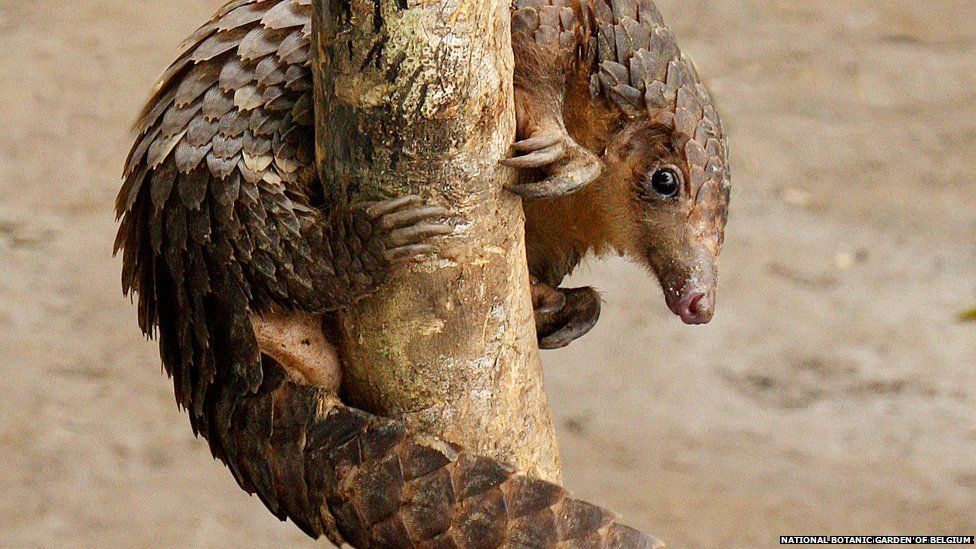Poaching pushes pangolin closer to extinction
- Published

Millions of pangolins are being hunted and killed in Africa, raising fears that they are being pushed to extinction.
The pangolin is the world's most trafficked and poached mammal, because of the demand for its meat and scales.
Conservationists say an international trade ban announced last year must be strictly enforced.
There are concerns that traders are illegally supplying African pangolins to Asian markets.
Populations of Asian pangolins have declined dramatically since the 1960s, leaving the creatures highly endangered.
Daniel Ingram of the University of Sussex worked with researchers in Africa on the first study to assess hunting levels of pangolins in the forests of Central Africa.
"Pangolins have been hunted across Africa for centuries," Dr Ingram told BBC News. "Because we don't have population estimates we can't tell if hunting for food is at sustainable levels or not.
"What we can say is that there is widespread pressure on pangolins from hunting in Central Africa, but we can't ascertain whether hunting is at sustainable levels or not because we need biology data and population estimates."
The team used data from more than 100 bush markets and hunting sites in 14 African countries to estimate how many pangolins are being killed.
They estimate that 0.4 to 2.7 million pangolins are hunted annually in Central African forests.
Prof Jörn Scharlemann, from the University of Sussex, said overexploitation was one of the main pressures driving wildlife, like the pangolins, closer to extinction, yet data to evaluate the pressures underlying species' declines was scarce.
"Collating data from local studies collected by hundreds of researchers allows us to provide vital information on the regional exploitation of African pangolins at a critical time for the survival of these species," he said.
"Bringing these individual studies together allows us to see the bigger picture that can help inform conservation policy and provide the evidence to governments across the world required to take action to use natural resources more sustainably."
Since 2014, all eight pangolin species in the world have been classified as threatened with extinction on The IUCN Red List of Threatened Species.
The Chinese and Sunda species are now listed as Critically Endangered, the Indian and Philippine pangolins as Endangered, and the four African species as Vulnerable.
It is estimated that since 2000, more than one million pangolins have been traded illegally internationally, which makes them the most trafficked wild mammal in the world.
The research is published in the journal Conservation Letters.
The price of the giant pangolin has risen 5.8 times since the 1990s, despite it being protected.
Follow Helen on Twitter.
- Published28 September 2016